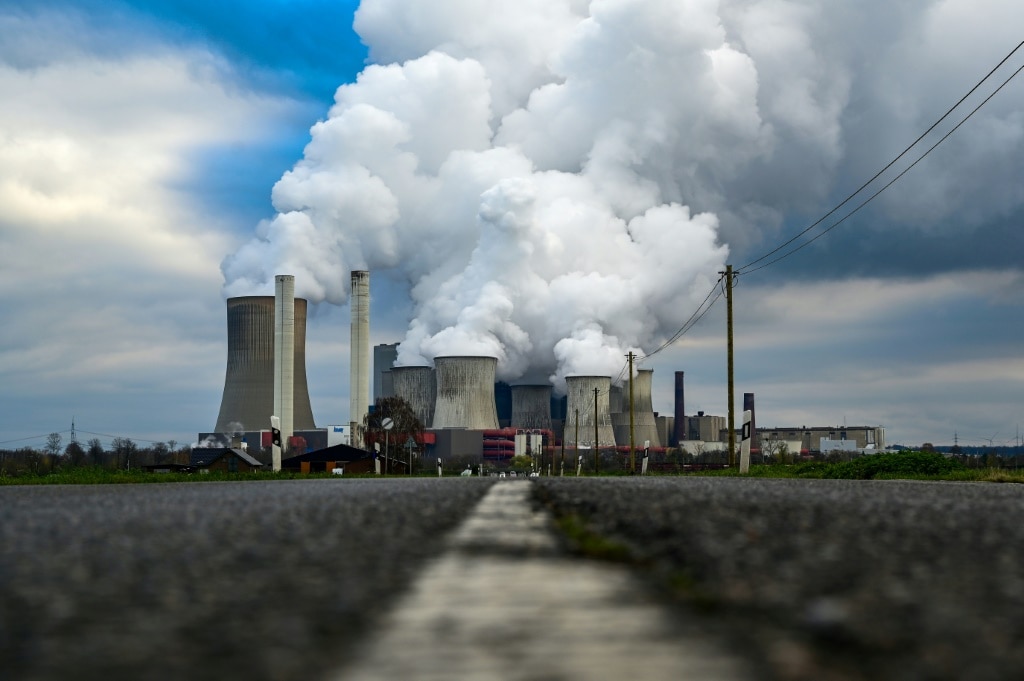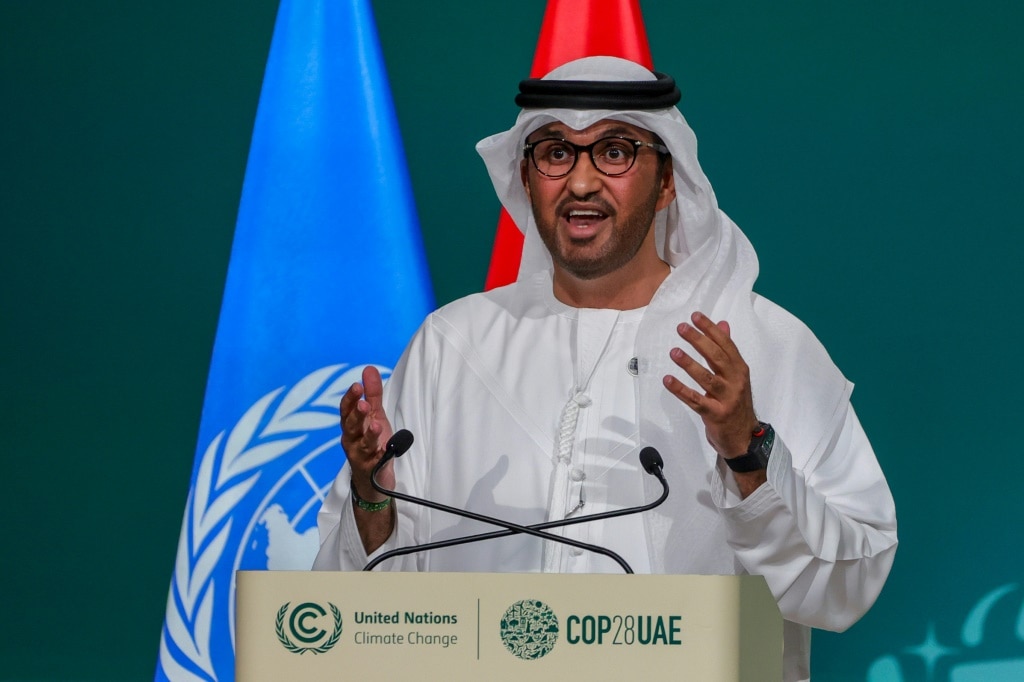Sultan Ahmed Al Jaber’s net zero pipe dream
Holding Cop28 in the UAE is a reminder that even when decarbonisation becomes profitable, it will be fought bitterly, says Hugo Rifkind.

According to Sultan Ahmed Al Jaber, who is both president of the Cop28 talks in Dubai and the head of the Abu Dhabi National Oil Company (Adnoc) – and, as such, less “poacher turned gamekeeper” than “fox in charge of the hen house” – there is no pathway to phasing out fossil fuels “unless you want to take the world back into caves”.
This is not true. Perhaps, though, it is worth pondering how close Al Jaber’s life is to that of a primitive troglodyte currently. Because my hunch is: not very.
Granted, I’ve been unable to find a glossy, Hello!-style “at home with the Al Jabers” spread to verify this, so it’s perfectly possible that he’s an unusually frugal and humble Middle Eastern sultan who is also a state-backed oil executive. In fact, I learn he did his PhD in Coventry, so if you were his flatmate and he always bought the supermarket own-brand ketchup instead of the real stuff, do get in touch and I’ll take it all back. As it is, I’m guessing that there is ample middle ground between his life now and the “cave” thing. So it is also worth pondering how far into this middle ground he, personally, would be willing to travel.

We’ll come back to that. First, though, let us acknowledge that the mere presence of a climate change conference in the United Arab Emirates, a desert nation that is currently constructing its second indoor snowy ski slope, sounds like a farce. That’s because it is one. Everyone knows. Coverage is muted, politicians are pained. Even Greta Thunberg, formerly so tireless, now seems to have morphed into a fervent pro-Palestine activist instead. Perhaps the eradication of Israel just looks like an easier challenge.
True, the UAE is a rapidly greenifying place, aiming to be internally carbon-neutral by 2050, which is the same year as us. What this doesn’t count, though, is the three to four million barrels of oil it pulls out of the ground every day, which it probably doesn’t much want the rest of the world to stop burning. On climate change, obviously, there is a legitimate debate to be had between hairshirt purity and a more realpolitik form of pragmatism. Your protesters and bus-gluers want the former, but not many others. Even pragmatism, though, probably looks a bit different when you’re the head of a Middle Eastern oil company.

Al Jaber’s conflict of interest is undeniable. But in relative terms, he probably doesn’t regard himself as a climate villain. Indeed, rather than being given the climate brief because he runs Adnoc, his career history rather suggests he was put in charge of Adnoc precisely because he was already a green energy buff. And yet, when an interviewer last month asked him whether his long-term plan was to put all oil companies out of business, including his own, he seemed bluntly astonished. “Why would I want to do that?” he asked. Because for an Emirati official, presumably, even entertaining the idea of shutting down oil would be a sure-fire way of being sent to Coventry. Yes, again.
British pragmatism is equally distinctive. Rishi Sunak, another man unlikely to live in a cave, flew into Dubai on a private jet. Here, he fended off accusations of backsliding, after delaying bans on petrol cars and allowing new drilling in the North Sea. From his perspective, I suppose, all this should be seen within the context that UK emissions have already plunged 48 per cent since 1990, faster than any other major economy, and at a time when some have soared.

To a less brazen extent, though, our sleight of hand is not that dissimilar to that planned by the UAE. Just as they have offshored the burning of oil, we have offshored heavy industry. And today, the products we still merrily consume are now just made elsewhere, in countries we condemn for still making them.
You can only kick the oil barrel so far down the road. Forget the Middle East. In the US, oil and gas supports ten million jobs. In Russia, it’s 16 per cent of GDP. There’s also Canada to think about, and Nigeria, Norway, Mexico, Brazil, Congo, Venezuela and many more. In Colombia (about 10 per cent) president Gustavo Petro is hellbent on ending production anyway. “Some may ask,” he said this week, “why would the president of this country want to commit suicide with an economy that relies on fossil fuels?” The answer, he said, was that the alternative was global suicide. Not many nations are prepared to lie down first. And that’s before we even think about the countries that merely use the stuff.

This is the dynamic that we techno-futurists are apt to forget. Like I said, Al Jaber is wrong. Of course there’s a pathway. The costs of renewable energy, and of batteries, are plunging. For the filth that must remain, effective carbon capture looms, albeit much as it has been looming for a generation. There is a future in which clean energy really is cheaper than dirty energy. Some would say we’re in it already.
Don’t kid yourself, though, that the gleaming deus ex machina of future technology is all it is going to take. Cop28 shows us there are other agendas here too. Note the sly downgrading of “phasing out” fossil fuels to “phasing down” instead. Note also the diminishing of “let’s limit warming to 1.5 degrees” to “let’s keep the dream of 1.5 degrees alive”. It’s a bit like the doctor saying he isn’t going to save your mum, just the dream of your mum. Lucky mum.
The fact is, not every nation wants the same thing. Often not in the short term, but sometimes not even in the long. Indeed, as global power shifts, Cop talks like Dubai could become the norm; scrappy, self-serving and corrupt. Whether there’s a pathway or not, in other words, it’s not a given that we’ll take it. Instead, even at best, we’ll be fighting ourselves every step of the way.
The Times







To join the conversation, please log in. Don't have an account? Register
Join the conversation, you are commenting as Logout